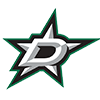Whether you're just starting DFS golf or a long-time fantasy golf guru, it's crucial to understand the fundamentals of the game. Despite the merger announcement in late 2016 between FanDuel and DraftKings, FanDuel rolled out their own unique version of DFS Golf in March of 2017. For those transitioning from DraftKings, year-long leagues, or general golf betting lines, many of the same strategies for finding good players and value plays apply to FanDuel PGA. For those hitting up FanDuel PGA as your first go at fantasy golf, get ready for a unique fantasy golf experience that requires plenty of strategy.
Below are several building blocks and tips for crafting successful squads on FanDuel.
Know the game types
• Tournaments (aka Guaranteed Prize Pools or GPPs) – these high-paying contests guarantee big paydays for the top finishers, but with the highest reward comes the highest risk.
Perfect for: Players seeking the big payout while competing against the masses
• Satellites and Qualifiers – these smaller-scale feeder contests reward winners with entries into upcoming elite contests on FanDuel.
Perfect for: Players looking to get into big GPPs at a discount
• Friends Mode/Leagues (3-100 Players) – As the name insinuates, contests range from 3-100 players with varying prize pools depending on the number of entries. Join a league or create your own to play against friends or challenge others from across the country. Overall a good way to start with friends who you can trash talk on Mondays.
Perfect for: Players who want to play against their friends or have control over the structure of their own league.
• Head to Heads – A straightforward match against one opponent, winner takes all (after the FanDuel rake). You can play for free or start with as little as $1 in this timeless format that's simple and fun.
Perfect for: Beginners who want to keep it simple or players looking to build up their cash flow at a steady pace.
• 50/50s and Multipliers – Smaller events where the upside is capped, but chances of winning are still sensible. In 50/50s you win if you outscore half the total entries, earning you about $1.80-$1.90 for every $1 entered (around $0.10-$0.20 is the FanDuel rake). You can double your entry fee in Double Up contests, but you'll need to finish better than just the top-half. The same concept applies for Triple Ups and Quintuple Ups, which get increasingly more difficult to win, but come with greater rewards.
Perfect for: Players looking for better payouts than head-to-head while having a better chance to cash than a GPP. It's a good middle ground between head-to-heads and tournaments.
So, where do you start? The good news is, with about a month of existence, everyone is new to FanDuel PGA. It's as close to a level playing field as you can get, but those experienced in general DFS strategies can still apply the same lineup and entry principles as they do in other sports or on other DFS sites. If you're new to the site, you can mingle with other beginners in Beginner Contests for your first 50 entries (unless you achieve 'Experienced' status early on).
Your choice of game type should reflect your risk tolerance. If you daydream of the huge payday, tournaments are your ticket for opportunity, but know that it comes with higher risk. If you want to improve your chance of winning more consistently over the long haul, head-to-head, 50/50s, and Double Ups are your best bet, though the rewards are smaller. It's not uncommon to see both experienced and novice players enter multiple game types to increase upside while limiting their risk as much as possible.
Most important thing to know
If you do nothing else before entering a contest, read the rules and know the scoring system. In FanDuel Golf, once you know the game types, the rules are simple: draft eight golfers and stay under the $60,000 salary cap. The scoring system is new and draws some attention, but typically gets overlooked.
In FanDuel, players get points for:
• Hole-by-hole scores throughout the designated rounds they play in (positive for par or better, negative for bogey or worse)
• Finishing position (in the top 25 only), regardless of their designation in rounds 1-2 or 3-4
• A few streaks and bonuses (like a 5+ birdies in a round or a bounce back).
For most players, hole-by-hole points in their two counted rounds make up 85-95% of their total FanDuel points. Players who finish in the top 10 are usually the only exceptions, in which case hole-by-hole points can dip to around 50% of a player's total (usually the champion). Points from finishing position become trivial after the top 10 finishers. Most streaks and bonuses are more rare than you'd think, except for bounce backs (over-par hole followed by an under-par hole), which can occur up to a handful of times in a week for a given player.
How to decide whom to play in rounds 1-2 and 3-4
The most sensible strategy (i.e. conventional wisdom) is to use higher-tier players in rounds 3-4 and lower-tier players in rounds 1-2, because it's more likely for higher-tier players to make the cut and therefore earn points in rounds 3-4, which is a big deal. In rounds 1-2, everyone in the field plays, so it's better to take chances on lower-tier players who are guaranteed to play and earn hole-by-hole points and bonuses.
However, conventional wisdom is simply playing the odds, it doesn't always need to apply if you're in a larger tournament where differentiation is a big factor. In these situations, you may want to take more risk for more potential reward, such as slating a top player in the 1-2 round slot and taking a larger risk on his lower-tier replacement in rounds 3-4. If the top player gets off to a great start and the lower tier player makes the cut, it could go a long way towards earning you a big payday.
Making the cut is critical, especially for players in rounds 3-4
Knowing that the clear majority of a player's total points come from hole-by-hole points, it becomes obvious that a major goal of your lineup is to have all four of your round 3-4 players make the cut. This will most likely guarantee each player two full rounds to build up valuable hole-by-hole points. In rare circumstances, a player could MDF (made cut, did not finish) or WD (withdraw) from a tournament and play something less than the two rounds, but this doesn't happen nearly enough to affect lineup strategy.
RotoWire Lineup Optimizer is here to support you
While the new FanDuel golf product requires players to select four to start in rounds 1-2 and four in rounds 3-4, the RotoWire Lineup Optimizer will get you halfway there in helping you settle on the best eight players to choose overall. From there it's up to you how to divvy up your team for rounds 1-2 and 3-4. The optimizer is a great tool to tinker with different strategies and ultimately guide your lineup decisions while still giving you the freedom to strategize which rounds (1-2 or 3-4) to slot each player in.
Check injuries and withdrawals
Both RotoWire and FanDuel are timely at labeling players who are injured or withdraw (WD) before the event, but it's good to double check before the event starts so your team isn't disadvantaged from the get-go. Starting a player returning from injury is risky because of the possibility of re-aggravating the injury and withdrawing mid-event, so tread with caution.
These are just a handful of key fundamentals, but look for more articles to come that go beyond the basics and share how to strategically grind out a lineup, and how you can use publicly available golf stats to do your own research and gain an advantage on the field.






































